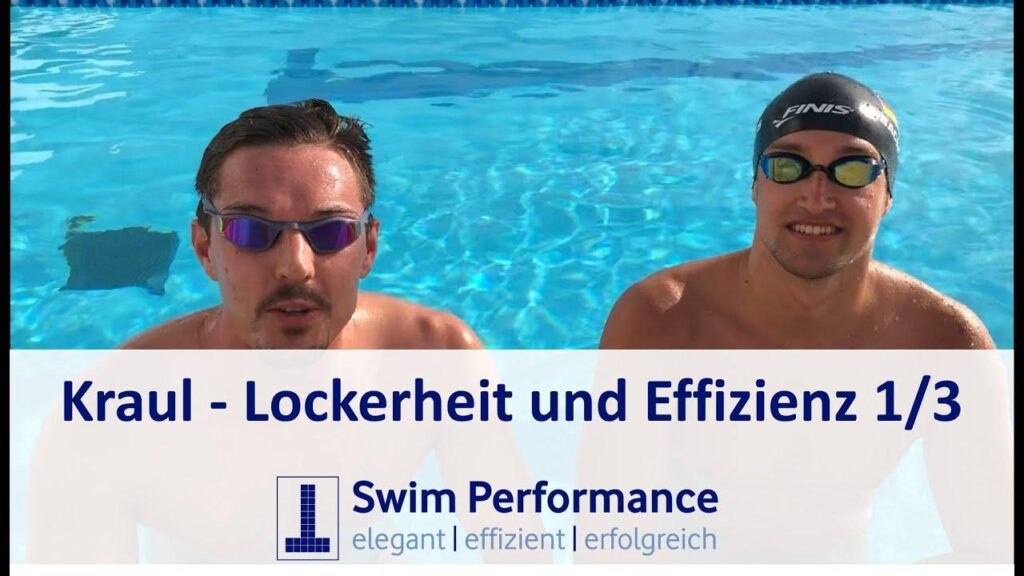In the competitive world of swimming, athletes relentlessly pursue every advantage to shave seconds off their times and enhance their endurance. While training regimens and technique refinements often take center stage, a lesser-known factor is emerging as a game-changer in swim performance: gut health. Recent research highlights the critical role the digestive system plays not only in overall well-being but also in fueling the body for optimal athletic output. As swimmers and coaches seek new strategies to boost performance, understanding and improving gut health may be the secret edge no one has fully explored-until now.
The Connection Between Gut Health and Athletic Endurance
Endurance athletes often chase the perfect training regimen, but few realize the pivotal role their digestive system plays in sustaining energy levels during intense activity. A healthy gut fosters efficient nutrient absorption, which directly impacts muscle recovery and stamina. Recent studies reveal that an optimized gut microbiome aids in reducing systemic inflammation, a common culprit behind premature fatigue. By maintaining a balanced gut environment, athletes can experience enhanced oxygen utilization and improved metabolic efficiency, essential for long swim sessions.
Incorporating gut-friendly habits can dramatically shift performance outcomes. Key practices include:
- Probiotic-rich foods: Yogurt, kefir, and fermented vegetables support beneficial bacteria.
- Prebiotic fibers: Found in garlic, onions, and bananas, they nourish gut microbes.
- Hydration management: Proper fluid intake keeps the digestive system functioning optimally.
- Stress reduction: Chronic stress disrupts gut balance and impairs endurance.
Understanding this connection can transform swim training by maximizing the body’s natural energy pathways.
| Gut Benefit | Athletic Impact |
|---|---|
| Increased nutrient absorption | Improved muscle repair |
| Reduced inflammation | Delayed fatigue onset |
| Balanced microbiome | Enhanced metabolic flexibility |
| Optimized hydration | Better thermoregulation |
How Optimizing Your Microbiome Enhances Swim Recovery and Strength
Emerging research reveals that a well-balanced gut microbiome plays a crucial role in accelerating muscle recovery after intense swim sessions. Beneficial gut bacteria produce metabolites such as short-chain fatty acids (SCFAs), which help reduce systemic inflammation and oxidative stress-two primary factors that impair recovery. By nurturing these microbes through diet and supplements, swimmers can experience less muscle soreness and improved repair processes, enabling them to jump back into the pool with renewed strength and endurance.
Beyond recovery, the gut microbiome influences nutrient absorption and energy metabolism, crucial components for sustained swimming performance. Optimizing gut health improves the body’s efficiency in processing proteins, vitamins, and minerals that fuel muscle growth and power output. The following key strategies support this microbiome-driven strength boost:
- Probiotic-rich foods: Yogurt, kefir, and fermented vegetables enhance microbial diversity.
- Prebiotics: Fibrous components found in garlic, onions, and bananas feed beneficial bacteria.
- Hydration: Proper fluid intake aids microbiome balance and nutrient transport.
- Avoidance of processed sugars: Reduces harmful bacterial overgrowth and inflammation.
| Microbiome Benefit | Impact on Swimming |
|---|---|
| SCFA Production | Quicker muscle recovery |
| Enhanced Nutrient Absorption | Improved energy and strength |
| Immune Modulation | Lower illness rates |
| Reduced Inflammation | Increased training capacity |
Expert Tips on Nutrition and Probiotics to Boost Your Swim Performance
Optimizing your swim training extends beyond hours in the pool; it starts in your gut. Incorporating probiotics into your diet can enhance nutrient absorption, reduce inflammation, and maintain energy levels essential for peak performance. Athletes should focus on foods rich in live cultures such as yogurt, kefir, and fermented vegetables. These natural sources help build a resilient gut microbiome, which plays a crucial role in immune defense and recovery post-workout. Additionally, pairing probiotics with prebiotic fibers like garlic, asparagus, and bananas fosters a thriving environment for beneficial bacteria.
Nutrition experts recommend precise timing and balance for maximizing benefits. Consider focusing on:
- Pre-swim meals that emphasize complex carbs and probiotics to sustain energy.
- Post-swim recovery snacks combining protein and probiotics to regenerate muscles and repair gut lining.
- Hydration practices that support gut function and maintain electrolyte balance.
| Meal Timing | Focus | Example |
|---|---|---|
| Pre-Swim (2-3 hrs before) | Complex Carbs + Probiotics | Oatmeal with kefir & berries |
| Post-Swim (within 30 mins) | Protein + Probiotics | Grilled chicken with sauerkraut |
| Hydration Throughout | Electrolytes + Water | Coconut water & water infused with lemon |
Key Takeaways
As the connection between gut health and athletic performance gains increasing recognition, swimmers looking to enhance their times and endurance should consider their digestive well-being as a key component of training. While traditional methods like technique refinement and physical conditioning remain essential, emerging research suggests that nurturing the microbiome could offer a competitive edge often overlooked in the pool. For athletes committed to pushing their limits, paying attention to gut health might just be the secret ingredient to unlocking new levels of swim performance.





